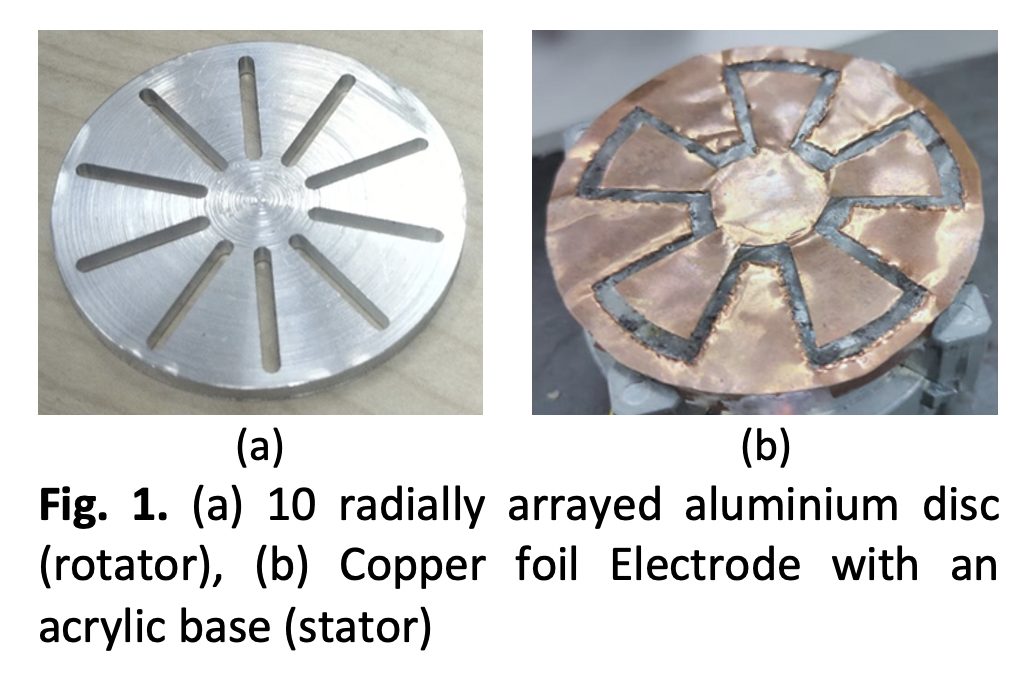The Effect of an Aluminium Disc Rotator on Polyvinyl Chloride (PVC) Material using 360° Lateral Sliding Disc Triboelectric Generator (TEG)
DOI:
https://doi.org/10.37934/araset.34.1.187198Keywords:
Lateral sliding, triboelectric effect, rotating speedAbstract
Triboelectric generatorshave the ability to harvest energy from human activities, mechanical vibration, and other sources to drive minor electronic devices.In many circumstances, charges created from a triboelectric process are referred to as a negative effect or waste energy. Here, this paper will demonstrate an approach of the charging process in friction with a rotator and stator to investigate the effects of rotating speed and the different thickness of electrification to the output voltage. The 360° lateral sliding disc triboelectric generator (TEG) fabricated by connecting an Aluminium disc to the motor as a rotator, while a Polyvinyl Chloride (PVC) sheet placed at the top of an acrylic coated by a copper electrode served as a stator. PVC material with different thicknesses (0.2, 0.5 and 0.7 mm) and grit sizes were used (P500, P1000 and P1500) and prepared prior to the experiment. Thus, three different rotational speeds (500, 1000 and 1500 rpm) were monitored using a tachometer to standardize the speed for each set of experiment. Such as a TEG at 1500 rpm on a 0.2 mm thick sample with P500 grit size modification delivers a maximum voltage output, VRMSof 13.8 mV, with the maximum calculated current of 69 µA and the maximum power density of 0.485 mW/m2.
Downloads





























